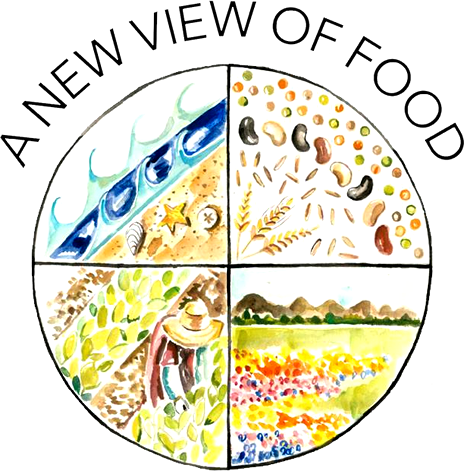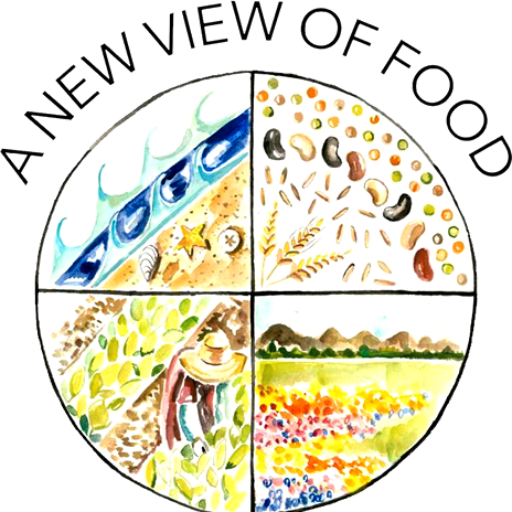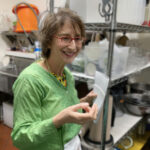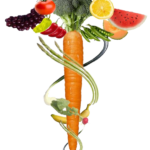Happy 2024! I hope you and your loved ones are safe and feeling well.

Remember in school when you returned from vacation and your teacher would ask you to write about your holidays: Where did you go? Who were you visiting? What did you learn?
My summer and fall are always filled with many hours of continuing medical education. Not only do I complete my Maintenance of Certification for the American Board of OBGYN and the American Board of Lifestyle Medicine, but I attend PCRM’s International Conference on Nutrition in Medicine, the International Plant-Based Nutrition Healthcare Conference, and the American College of Lifestyle Medicine conferences.
I was also invited to speak on the topic of menopause at The Best Plant Based Conference Ever in Richardson, Texas. It was an absolute honor to present alongside Dr. Joel Fuhrman, Brenda Davis, RD, and the amazing Victoria Moran among other exceptional speakers.
Dr. Michael Greger was even busier than usual publishing his latest book, How Not to Age, and it really is from all of these wonderful and reliable sources that I have come away with new and exciting knowledge to now share with you.
1. Consider not eating bananas with your blueberries. Dr. Fuhrman mentioned this in one of his lectures in Texas and it blew my mind; something about some enzyme in bananas that keeps you from absorbing the wonderful phytonutrients in blueberries. I was initially incredulous and wrote to Dr. Greger. Well, it’s true! The enzyme, polyphenol oxidase, PPO, breaks down and prevents absorption of the health promoting polyphenols found in berries as well as other foods. You can read more about this HERE. Below is an image from the study clearly showing that bananas prevent absorption of important polyphenols. On the left, blood levels of polyphenols taken alone in a capsule form. On the right, mixed in a berry smoothie; and in the center, those same polyphenols mixed into a smoothie containing bananas. A noticeable difference! Consider using frozen mango to thicken your smoothies.

2. Since reading How Not to Age, I was reminded about autophagy, a way that our body removes and recycles old and damaged cells. This is one important mechanism to slow the aging process: a recycling of the reusable parts of cells while discarding the damaged, and it is something that is increased with prolonged fasting. It turns out that a major phytonutrient that increases autophagy (without fasting) is spermidine. Spermidine is found in many foods that we already know and love, such as soy beans and especially tempeh, a fermented soy food, but also wheat germ. So I now add a tablespoon of wheat germ for spermidine to my oats or salads, along with my tablespoon of ground flax. you can learn more about spermidine HERE.
3. From Dr. Greger’s previous book, How Not to Diet, I was reminded of research on our circadian rhythms and the timing of calories ingested. People always tell me, “A calorie is a calorie is a calorie.” Who hasn’t heard that? Well, it’s not true at all. A calorie ingested at 8 AM is metabolized differently than a calorie ingested at 8 PM! If you want to lose a few pounds and not change the number of calories you eat in a day, try eating a larger percentage of calories in the morning and much fewer later in the day. Don’t eat after 7 PM, and stick to mainly whole plant foods.
4. Plant based diets save you money. It’s notmore expensive to eat a diet of whole plant foods. Studies have shown that eating a plant based diet saves you about $500 dollars a year over a typical omnivorous diet. So when folks complain that eating plants is too expensive, you can share this study.
5. This may be the most important of all: Plant based diets are not time consuming, they give you more time in your life. I am always hearing that it takes more time to make a plant based meal than to eat animal based foods, but what you eat determines your health and your longevity more than any other lifestyle factor.
A low carbohydrate paleo or ketogenic diet takes years off your life. While a high carbohydrate diet of whole plant foods adds healthy years to your life, even if you are already a senior. Dr. Dean Ornish showed that telomeres, the caps on our chromosomes that shorten as we age, actually lengthen on his low fat diet, with other healthy lifestyle changes (moderate exercise, stress management and support). You can read about his groundbreaking research HERE.
A more recent study of 22 pairs of identical twins found that on just 8 weeks of a healthy vegan diet compared to a healthy omnivorous diet, telomere lengths were quite different. The previously identical twins, were no longer exactly the same age, with the vegans now having longer telomeres on their chromosomes than their omnivorous siblings. You can read about this Stanford University study HERE, or watch the Netflix series called “You Are What You Eat” to follow some of the participants on their journey.
So there you have it, 5 new facts to consider as you go about your days, and plan your meals. If you want some help making positive changes that will help you slow aging and prevent chronic disease from cutting your health span short, I’m always available to you. It’s not hard, it’s not expensive, it’s a change in how you think about food. A New View of Food in 2024. Maybe it’s about time.
If you would like a complimentary Discovery Session just reach out through my website, www.anewviewoffood.com. Whether you are thinking about a single consultation, or a package of weekly or semi weekly sessions to ensure ongoing support and success, let’s set up a time to chat. A healthier you may be just a phone call away!
TO A HEALTHY AND HAPPY NEW YEAR FOR ALL!







